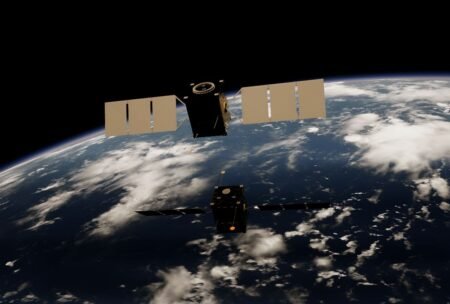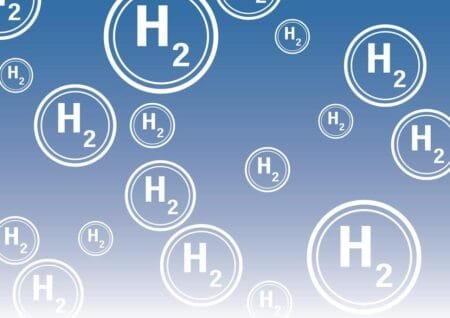The European Commission and the United Kingdom reached a political agreement on 8 September on the UK’s participation in Horizon Europe, the EU’s research, and innovation programme, and Copernicus, the EU’s world-leading Earth observation programme.
Advertisement
What is Horizon Europe and what does it mean for the UK?
Horizon Europe is the world’s biggest civil research and innovation programme with a budget of 95.5 billion from the EU alone, coupled with the contributions of associated countries. It supports EU Member States and associated countries in unlocking their national research and innovation potential by funding frontier research projects, fellowships, break-through innovation and the mobility of researchers. Horizon Europe sets ambitious goals to tackle some of today’s biggest global challenges, such as health crises or the fight against climate change, as it reinforces technological and industrial capacities across the EU.
Association to Horizon Europe will allow researchers and organisations in the UK to participate in the programme on equal terms with researchers and organisations from EU Member States. It will allow the EU and UK to deepen their relationship in research and innovation, bringing together their research communities.
What is Copernicus and what does it mean for the UK?
Copernicus is the EU’s satellite system for observing and monitoring the Earth. It consists of a complex set of systems which collect data from multiple sources: Earth observation satellites and in situ sensors such as ground stations, airborne sensors, and sea-borne sensors. It processes this data and provides users with reliable and up-to-date information through a set of services related to climate change and the environment, prevention and management of disasters and security. As such, Copernicus makes an essential contribution in reaching the EU Green Deal and Net-Zero objectives.
The UK will have access to all Copernicus products and services. This includes the thematic services for land monitoring, marine environment, atmosphere as well as climate change monitoring. The Copernicus products and services provided will be extended to cover the UK’s territory. For the on-demand services, the UK will be able to access as an authorised user the Copernicus emergency management service. In the security domain, this will depend on the cooperation agreed between the EU and the UK in the relevant areas.
UK companies and research institutes will be able to bid for contracts implemented under Copernicus. They will follow the same rules as companies from EU Member States, except where the Regulation of the EU Space Programme restricts participation in procurements that are sensitive for security reasons (Art 24).
How much does the UK have to pay to take part in these two programmes?
Overall, it is estimated that the UK will contribute almost 2.6 billion per year on average for its participation to both Horizon Europe and the Copernicus component of the Space programme.
This contribution is in line with the terms agreed in the Trade and Cooperation Agreement.
Did you change the Trade and Cooperation Agreement?
No, all core provisions of the Trade and Cooperation Agreement, as agreed in 2020, remain applicable. All safeguards under the Trade and Cooperation Agreement remain the same, including full payment of the participation fee and the automatic correction mechanism in case of UK overperformance.
From when will the agreements apply?
Association to both programmes will become effective as of 1 January 2024.
Will the UK have to make financial contributions for the time it was not associated to the programmes?
No. Financial contributions will be effective as of 1 January 2024.
What happens to those researchers subject to the transitional arrangement?
So far, scientists affiliated to a UK institution have benefitted from a transitional arrangement, which allowed them to apply and be evaluated as other potential beneficiaries under Horizon Europe calls. However, in order to be eligible for EU funding, there needs to be an association agreement in place. In practice, this means that in most cases UK entities were able to continue cooperation within Horizon Europe research consortia while obtaining their funding from other sources. Today’s agreement means that these researchers will be able to access Horizon Europe funding from 2024 work programmes and onwards.
Is there a correction mechanism to take account of the UK possibly underperforming or overperforming?
Yes, there is a correction mechanism built in for Horizon Europe.
In case the UK obtains more receipts in grants than its contribution for grants, the Trade and Cooperation Agreement stipulates that there is an automatic correction to the UK’s contribution if it reaches a threshold of 8% over two successive years.
In case the UK receives significantly fewer grants than its contribution, other correction mechanisms are provided for. The first way to rebalance the situation should be to try to improve the level of UK participation. If the UK overpays by more than 12%, it may bring the matter to the joint Specialised Committee on Participation in Union Programmes for consideration and agreement of appropriate measures to balance the situation.
Given that the UK has not been fully part of Horizon Europe for the past two years, the Commission and UK have agreed on a temporary and automatic mechanism to address any risk of critical underperformance by the UK for the remainder of the current MFF should the imbalance exceed 16%.
Will the UK have access to Horizon Europe sensitive actions?
As provided for by Art. 22(5) of the Horizon Europe Regulation, for actions related to Union strategic assets, interests, autonomy or security, the work programme may provide that the participation is limited to legal entities established only in EU Member States or to legal entities established in specified associated or other third countries in addition to Member States.
As for all third countries, the EU will assess UK participants’ access to such strategic parts of the Horizon Europe programme.
Will the UK’s contribution be paid annually or another way?
The Commission will issue twice a year a call for funds to the United Kingdom that corresponds to the contribution of the United Kingdom under the Trade and Cooperation Agreement for each of the programmes.
Why is the UK not participating in Euratom or F4E (Fusion4Energy)/ITER (International Thermonuclear Experimental Reactor)
The UK has decided not to pursue its association to Euratom and Fusion4Energy / ITER. This decision is guided by the UK’s assessment that its industry’s long absence from Euratom and F4E/ITER programmes cannot be reversed.
Will the UK also participate in Erasmus+ and other such programmes?
The Erasmus+ programme is open to the participation of third countries under the conditions set out in the basic act establishing the programme. Among these, third countries that become associated to Erasmus+ have to participate in the programme in full, to ensure the synergies between the different areas in the programme. However, the UK decided in 2020 that it did not want to participate in Erasmus+. This meant that UK participants have lost the chance to benefit from the programme. During the period 2014-2020, over 7,300 UK organisations were involved in the programme. The programme benefitted more than 197,000 UK participants, of which more than 100,000 UK students went abroad in the framework of the programme.
Why did it take so long to negotiate?
The conditions for associating the UK were not opportune, in view of the overall EU-UK relationship. The agreement on the Windsor Framework allowed association talks to resume. Therefore, it is now time to move forward with the final steps for associating the UK.
Next steps
The political agreement must now be approved by EU Member States before being formally adopted in the EU-UK Specialised Committee on Participation in Union Programmes.
Joint statement by the European Commission and UK Government
EU SST EU Space Surveillance and Tracking
Source: European Commission







